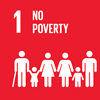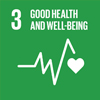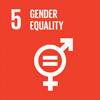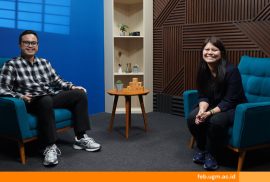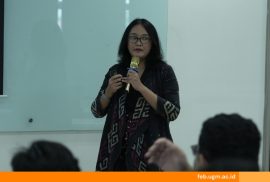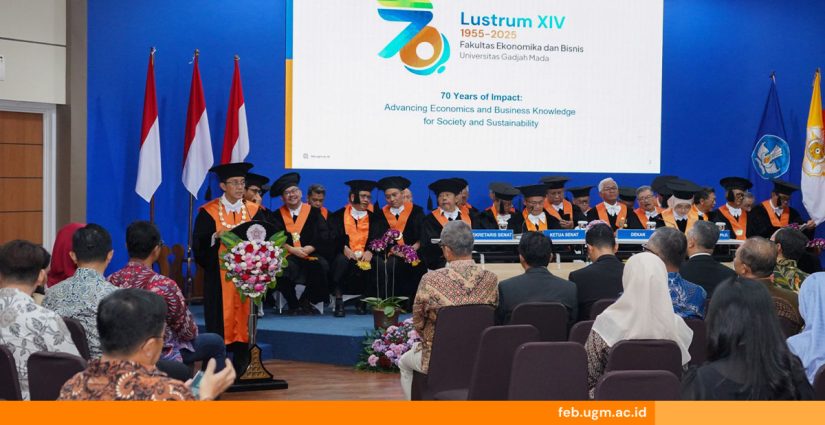
The Faculty of Economics and Business, Gadjah Mada University (FEB UGM) celebrated 70 years since its establishment on 19 September 1955. With the theme ’70 Years of Impact: Advancing Economics and Business Knowledge for Society and Sustainability’, the 70th anniversary (Lustrum XIV) celebration reflects the faculty’s mission to nurture future leaders in economics and business to develop sustainability aspects.
The Dean of FEB UGM, Prof. Didi Achjari, S.E., M.Com, Ak., CA., stated that FEB UGM’s seven decades of journey reaffirm its commitment to continue providing knowledge and practices in economics and business that are genuinely beneficial to society while being oriented towards sustainability. This aligns with UGM’s new credo, ‘People-oriented, Independent, and Sustainable.’
Accreditation and Reputation Achievements
Didi revealed that one of the crucial achievements was FEB UGM’s success in maintaining international accreditation from the Association to Advance Collegiate Schools of Business (AACSB), the world’s first and most prestigious business school accreditation institution. In 2024, FEB UGM successfully achieved reaccreditation from the Association to Advance Collegiate Schools of Business (AACSB) for the second time, covering all undergraduate and postgraduate study programmes. In 2025, FEB UGM obtained the highest national accreditation, namely the ‘Excellent’ rating from LAMEMBA for all 14 study programmes under the Department of Accounting, Economics, and Management.
“This achievement reinforces FEB UGM’s position as an educational institution that is not only highly competitive in the eyes of the world but also has strong roots in the country,” said Didi when delivering the 2025 FEB UGM Dean’s Annual Report at the Open Senate Meeting, which took place on Friday (19/09/2025) at the Function Hall of the FEB UGM Learning Centre Building.
Regarding global reputation, FEB UGM maintains its solid position in the QS World University Rankings (WUR) by Subject. In the field of Accounting and Finance, FEB UGM has maintained its position in the 151–200 range globally from 2023 to 2025, after being ranked 201–250. In Business and Management Studies, FEB UGM has consistently been ranked 201–250 worldwide for the past few years. Meanwhile, FEB UGM has shown significant achievements in Economics and Econometrics, rising from 301–350 in 2021–2022 to 251–300 worldwide in 2025.
Academics and Student Affairs
In the academic field, FEB UGM maintains a rigorous selection process to ensure the quality of students accepted. In the 2025 academic year, FEB UGM accepted 583 new undergraduate students from 14,363 applicants, meaning that only 4.06% of applicants were accepted. In addition, FEB UGM accepted 38 new students for the Professional Accountant Program, 414 new students for the Master’s Program, and 26 new students for the Doctoral Program.
Didi mentioned that FEB UGM students also show diversity in their backgrounds. In 2025, FEB UGM students came from 32 provinces in Indonesia. This confirms FEB UGM’s role as a faculty with an inclusive national appeal, opening access to higher education for the nation’s best sons and daughters from various backgrounds and regions. Additionally, in 2025, 248 students received the Indonesia Smart Card for Higher Education (KIP-K) scholarship, 211 students, or approximately 50.36% of the total new students, and 11.69% of new undergraduate students paid zero tuition.
“This number shows that more than half of the regular undergraduate students of the 2025 FEB UGM cohort received financial support to ease their tuition fees. A total of 157 FEB UGM undergraduate students successfully obtained scholarships from various regular and outstanding scholarship schemes,” he explained.
Academic innovation continues to be pursued, ranging from fast-track programmes and the opening of new sustainability-based concentrations to the launch of the International Doctorate in Business (IDB), which bridges the academic world and industrial practice. FEB UGM also strengthens international cooperation through double degree programmes with more than 85 partner universities.
FEB UGM also continues to develop Massive Open Online Courses (MOOCs) that are accessible free of charge to students and the wider community. Services to students are also enhanced by the Career and Student Development Unit (CSDU) to support career development and maintain the mental health of the academic community.
Research and Societal Impact
The productivity of research and publications at FEB UGM shows a positive trend. FEB UGM lecturers published 86 scientific articles in reputable international journals in 2023 and 115 in 2024. This positive trend continued until 15 September 2025, with 85 articles published, 63% of which were in reputable international journals with the highest quartile rankings.
FEB UGM also has several reputable scientific publication outlets. The Journal of Indonesian Economy and Business (JIEB) and Gadjah Mada International Journal of Business (GamaIJB) have been indexed by Scopus (Q3). At the same time, the Journal of Leadership in Organizations (JLO) is ranked Sinta 2, and Accounting and Business Information Systems (ABIS) is ranked Sinta 5.
FEB UGM is also active in collaborative research, training, and providing research and consulting services with external parties oriented towards societal impact. Until August 2025, through FEB UGM’s Research & Development for Societal Impact (RDSI), the faculty will continue to be a forum for lecturers to contribute to various research collaborations and capacity-building activities.
Strengthening Human Resources, Infrastructure, and Inclusive Campus
Regarding human resources, FEB is committed to maintaining the quantity and quality of human capital, both lecturers and professional staff. Regarding academic positions, 28 lecturers (21%) at FEB UGM are professors, an increase from 19.2% last year. Furthermore, 23 lecturers (17%) are senior lecturers, 38 lecturers (28%) are lecturers, and 22 (16%) lecturers are still assistant experts. There are 25 FEB UGM lecturers (18%) who are in the process of achieving their first functional position.
Didi said that FEB UGM consistently demonstrates its commitment to building a high-quality, global-standard support system. This is reflected in developing international-class facilities and infrastructure, such as modern laboratories and digital learning platforms that optimally support the academic process.
FEB UGM also places inclusivity as a core value in campus development. The available facilities are designed to be accessible to all groups, including individuals with special needs. This step creates a modern learning environment and ensures everyone has equal opportunities to develop and contribute.
Commitment to Sustainability
Didi said that this year marks a significant milestone for FEB UGM with the establishment of a new unit focused on sustainability initiatives, namely the Sustainability and Strategic Initiatives Unit (SSIU). Since its inauguration, SSIU has produced several outputs, including a Sustainability Report and Sustainability Initiatives Guidelines. The Sustainability Report marks a milestone in FEB UGM’s journey to integrate sustainability principles into all institutional aspects.
FEB UGM also initiated the Sustainable Business School Framework (SBSF), which is a framework to encourage sustainability practices in higher education, particularly business schools. The SBSF is designed to assist in the transformation of business schools into sustainable institutions that support social, economic, and environmental aspects. With the support of various parties, FEB UGM officially introduced the SBSF, sustainability initiative guidelines, and the first semester 2025 sustainability report as a manifestation of its commitment to carrying out its mission and achieving its vision of becoming a leading economics and business faculty.
“The achievements, impact, and reputation of FEB UGM are inseparable from the collaboration and dedication of the entire FEB family, the Faculty Advisory Board (FAB), alumni, and the full support of the UGM Rector and the entire management team, the government, as well as the trust given by various partners and the wider community,” he concluded.
The full text of the dean’s speech can be accessed via the link http://ugm.id/LaporanTahunanDekan
Report: Kurnia Ekaptiningrum
Sustainable Development Goals

